KEEP NEWS
SUNY Poly Team Visits KNUST to Strengthen Research and Academic Partnerships
Published: 03 Apr 2025
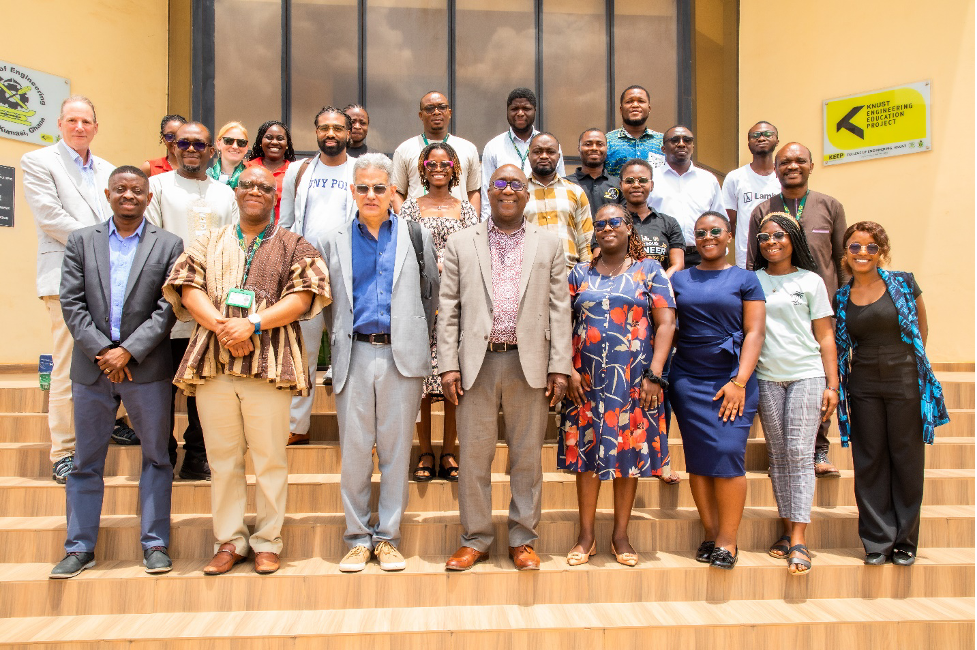
In a bid to strengthen international research and academic collaboration, a high-level delegation from the State University of New York Polytechnic Institute (SUNY Poly) visited the Kwame Nkrumah University of Science and Technology (KNUST). The visit, from 25th to 26th March 2025, allowed deans, faculty members, researchers, and senior officers from both institutions to engage in discussions to foster long-term partnerships.
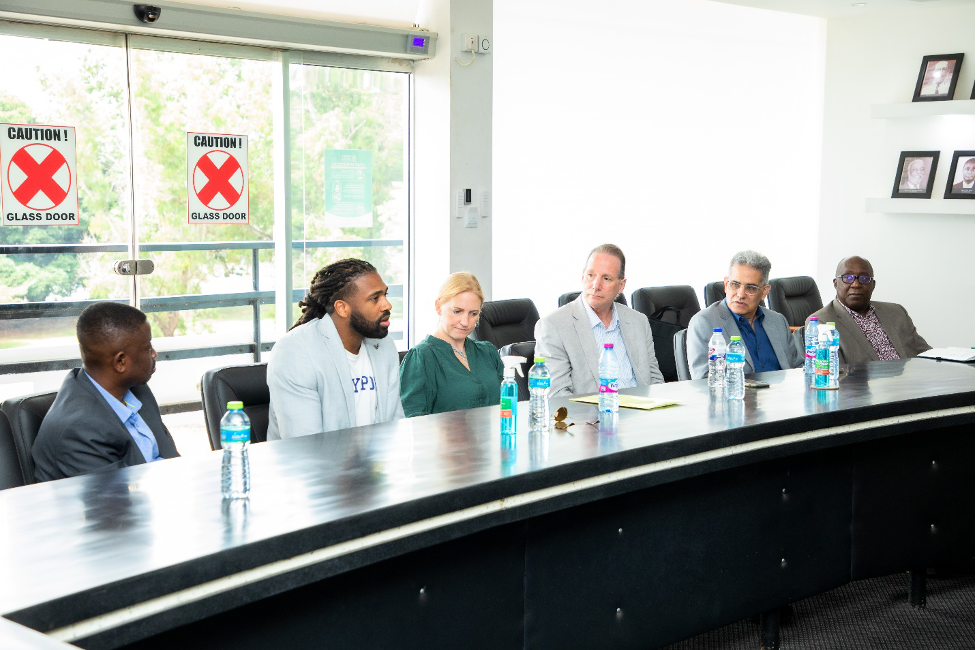
Leading the delegation was Prof. Wole Soboyejo, President of SUNY Poly, accompanied by Prof. Steve Schneider, a Professor of Communications, Information Design, and Co-Director of the Artificial Intelligence Exploration Centre; William Thistleton, a Mathematician and Coordinator of Graduate Programmes in Data Science and Analytics; Asumadu Tabiri, a Lecturer at Sunyani Polytechnic who also collaborates with Prof. Soboyejo on research and projects; Kevyn Hill, the Director of International Student Services and Coordinator for SUNY; and Willjavian Dawson, the International Admissions Advisor. Their agenda centred around potential collaborations in engineering education, artificial intelligence research, and student and faculty exchange programs.
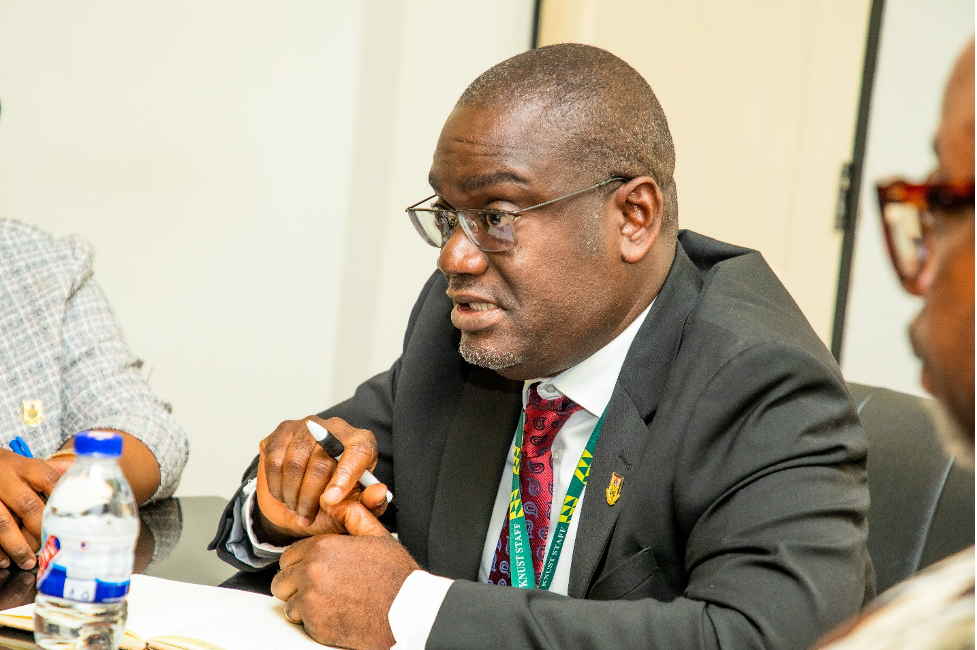
The first stop for the SUNY Poly team was the College of Engineering, where they paid a courtesy call on the Provost, Prof. Kwabena Biritwum Nyarko. With a warm welcome, he expressed his enthusiasm for the collaboration, emphasising KNUST’s commitment to fostering meaningful global partnerships. “The College of Engineering values collaborations that enhance research and academic excellence. Working together with SUNY Poly will create new opportunities for innovation and knowledge sharing,” he noted.
As the discussions progressed, the focus shifted to entrepreneurship and industry partnerships. Prof. Nyarko highlighted the need to nurture engineering startups within KNUST, ensuring that students and faculty had the support required to translate their innovations into viable businesses. The delegation explored ways to bridge the gap between academia and industry, a crucial step in ensuring that engineering research provides practical solutions for societal challenges.
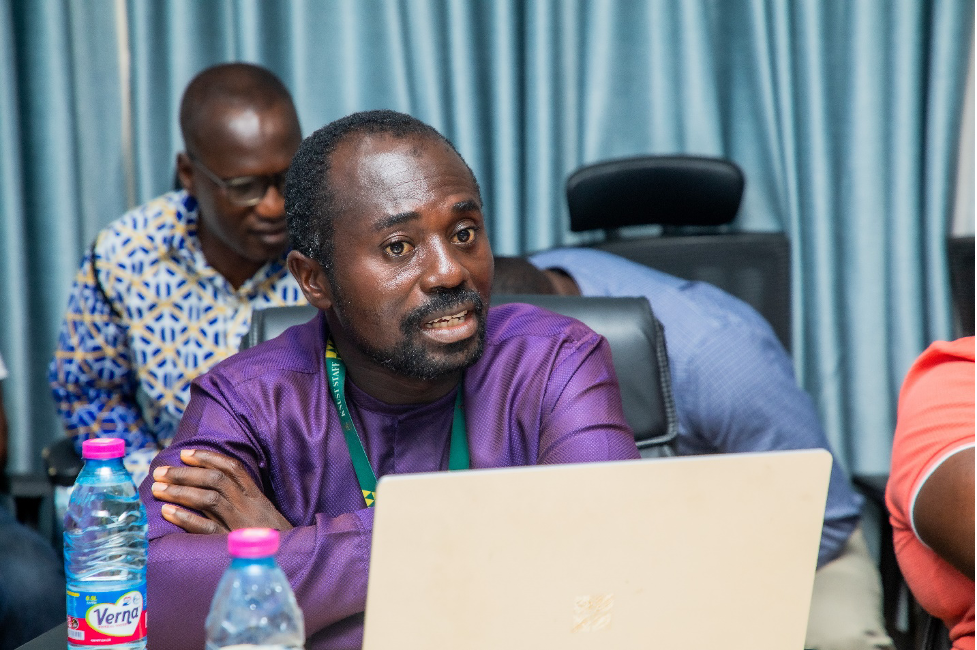
One of the most compelling moments of the meeting came when the Dean of the Faculty of Electrical and Computer Engineering, Prof Emmanuel Asuming Frimpong, posed a thought-provoking question: “How do we maximise the talent we have in Ghana to make a global impact?”
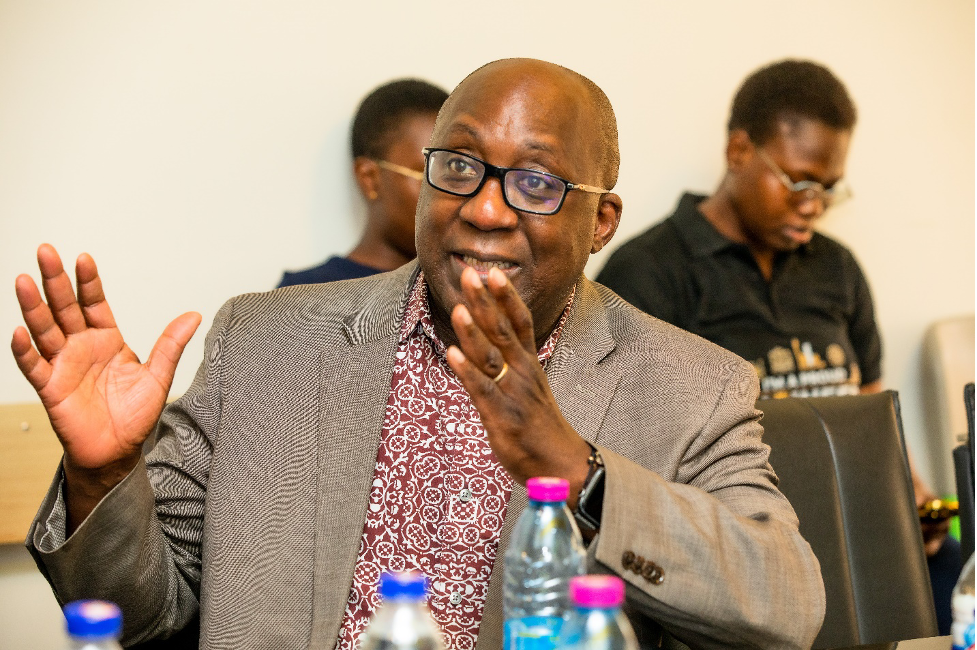
The response came from the President of SUNY Poly, Prof. Wole Soboyejo, whose words resonated with everyone in attendance. He outlined three crucial steps that could propel Ghanaian engineers onto the world stage.
"First," he said, "we must focus on demand-driven areas. Engineering education should align with fields with a clear global need, such as artificial intelligence, renewable energy, and advanced manufacturing."
Building on this, he emphasised the need for entrepreneurship, stating, "Second, we need to equip students not just with technical skills but also with the ability to create wealth. Innovation must be coupled with entrepreneurship, allowing our graduates to turn their knowledge into sustainable enterprises."
Finally, he highlighted the importance of global perception, stressing, "We must convince global industries that there is a strong pool of talent here. Institutions need to market their graduates as industry-ready professionals who can solve real-world problems."
His remarks further discussed how KNUST and SUNY Poly could collaborate to implement these strategies. He also stressed the importance of blending theory and practice, ensuring students gain hands-on experience while building a solid academic foundation.
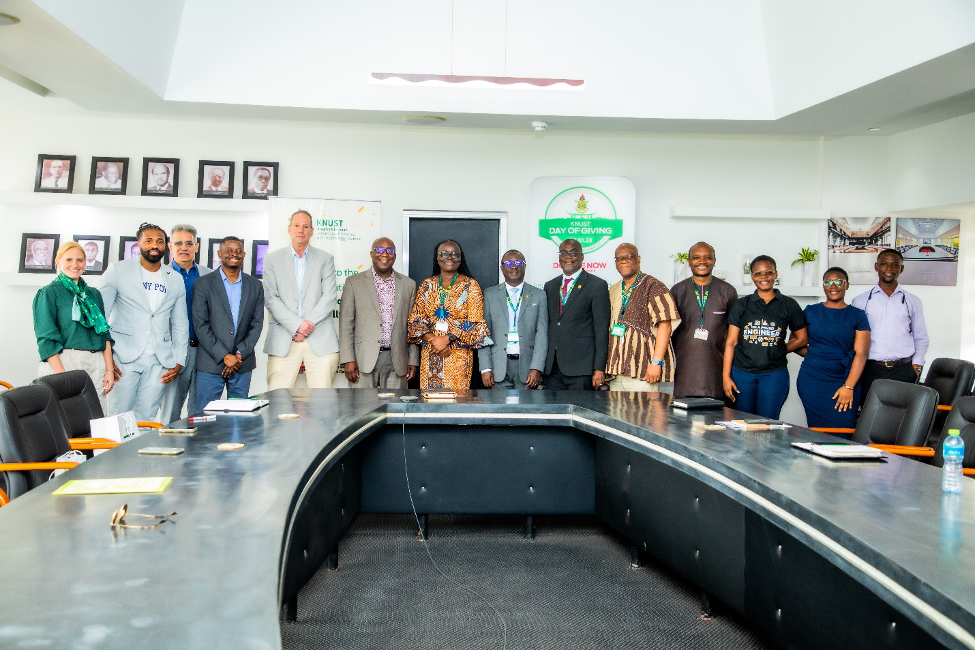
From the College of Engineering, the team proceeded to the office of the Vice-Chancellor, Prof. Mrs.Rita Akosua Dickson, who warmly welcomed them and underscored KNUST’s commitment to international partnerships.
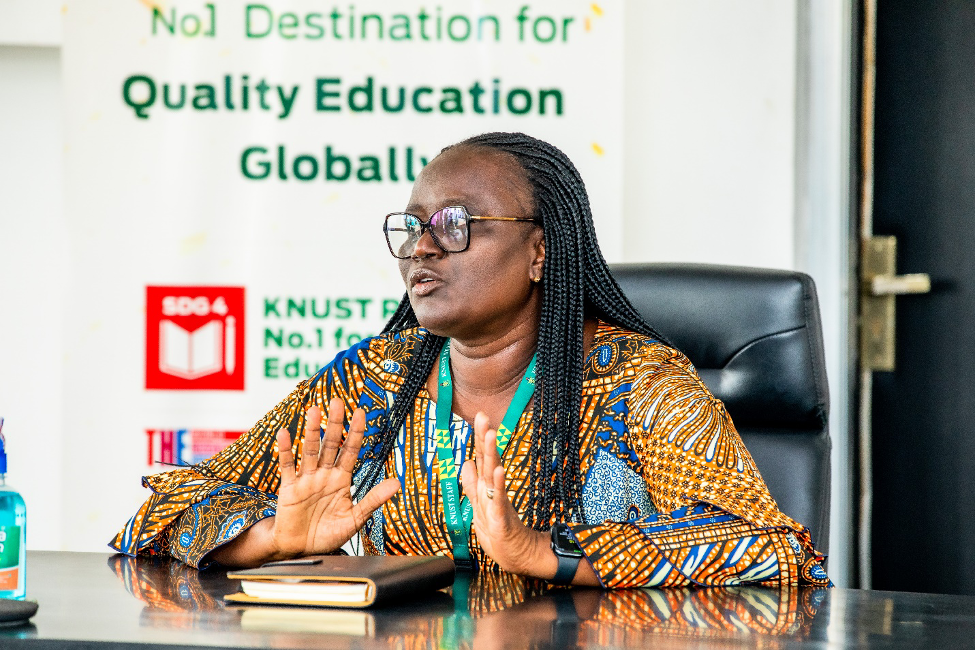
“KNUST is always looking to establish collaborations to enhance academic excellence and research impact. Partnering with institutions like SUNY Poly allows us to create opportunities for our students and faculty to engage in projects with global relevance,” she stated.
Their conversation explored a broader opportunity for collaboration, including the possibility of joint degree programs, faculty development initiatives, and co-authored research publications.
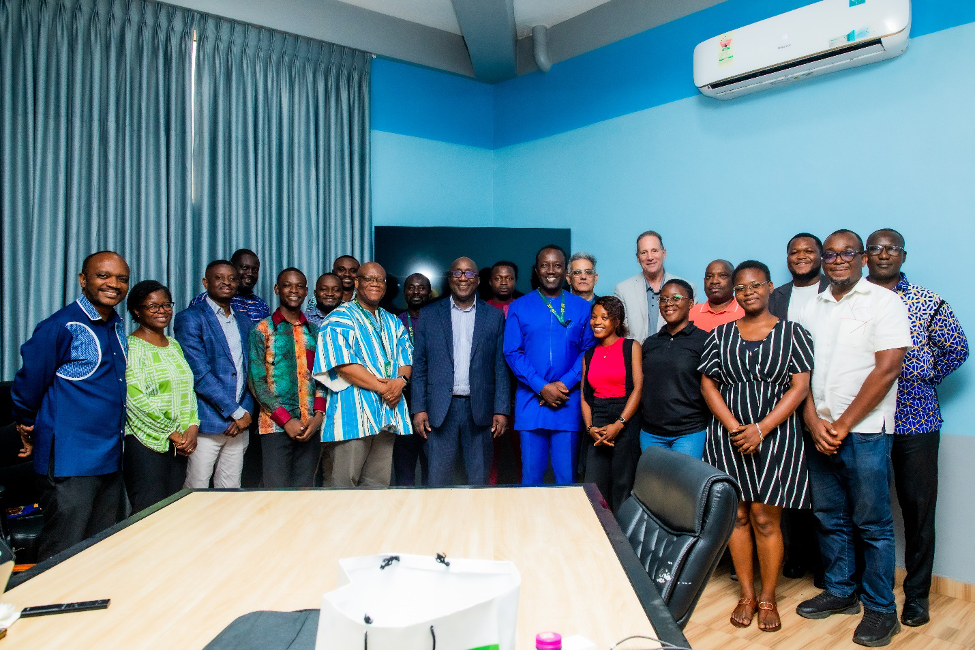
Beyond the high-level meetings led by Prof. Jerry John Kponyo, faculty members engaged them in detailed discussions to outline specific areas of collaboration. These sessions allowed deans, faculty members, and researchers to exchange ideas on how their expertise could complement each other’s work.
One of the key topics discussed was joint research in artificial intelligence, sustainable engineering, and advanced manufacturing. Faculty members explored ways to co-design AI fundamental courses for engineering students and share resources. The SUNY Poly team expressed keen interest in how KNUST integrates AI into engineering education, with suggestions on possible curriculum enhancements to prepare students for the evolving technological landscape.
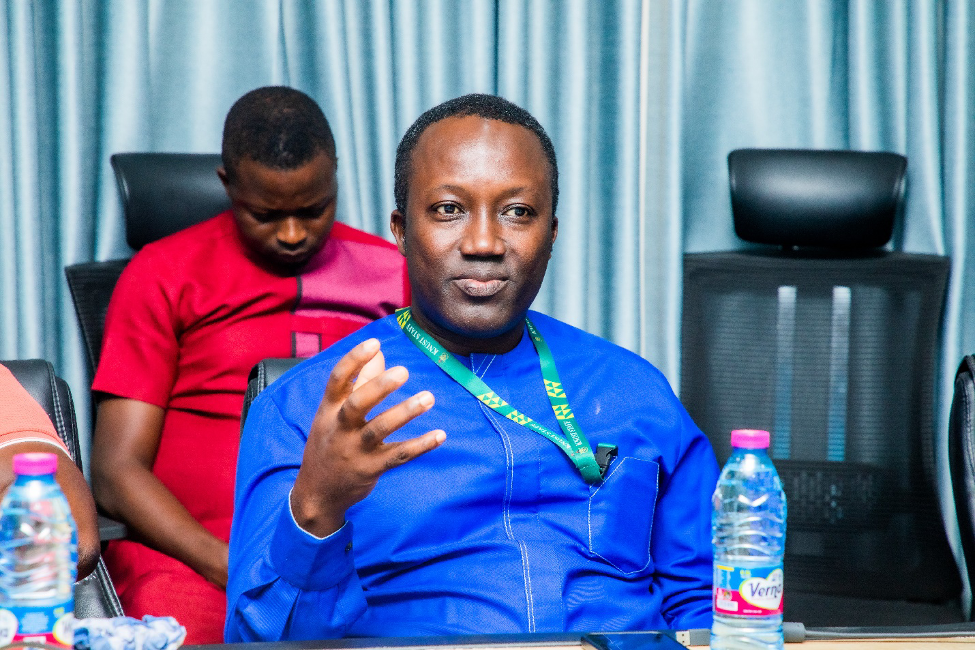
Another major area of discussion was student and faculty exchange programs. Led by the Dean of the International Programmes Office of KNUST, Prof. Daniel Yaw Addai Duah, both institutions recognised the value of exposing students to different academic environments and cultures. Plans were explored for creating short-term exchange programs where students from KNUST could study at SUNY Poly for a semester or participate in summer research projects. Faculty exchanges were also considered, with the idea of sending lecturers between institutions.
